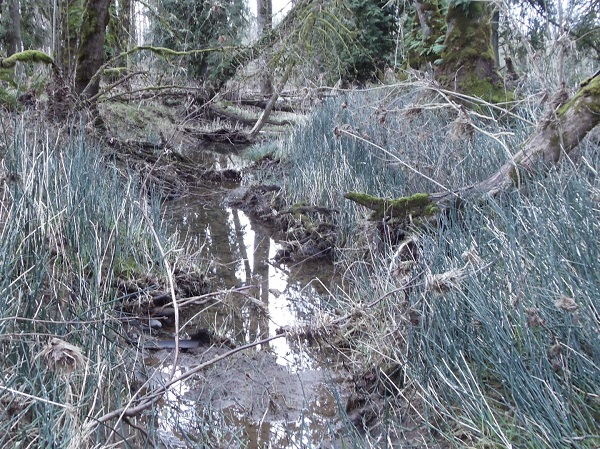Chub Slough
Owned Property
The McKenzie River Trust purchased the property in fee title with the support of the McKenzie Watershed Council’s 412 Fund and the Eugene Water and Electric Board’s Healthy Farms Clean Water program. An early project development grant was provided by the Meyer Memorial Trust.

Within this network of conserved lands, healthy populations of Oregon chub, Chinook salmon, pond turtles, and red-legged frogs thrive.
Meet Chub Slough
Why It’s Important
Chub Slough is part of a network of complex, dynamic habitats across several hundred acres of protected floodplain land on the lower McKenzie. Located nearby the Berggren Watershed Conservation Area and Bellinger Boat Landing, Chub Slough’s intact floodplain forest habitat contributes to the “string of pearls” in this area. Within this network of conserved lands, healthy populations of Oregon chub, Chinook salmon, pond turtles, and red-legged frogs thrive.
What’s in a name?
Oregon chub are a tiny minnow found only in the clean rivers of the Willamette Valley. After Oregon chub were placed on the Endangered Species List in the 1990s, the McKenzie River Trust came together with the Oregon Department of Fish and Wildlife, private landowners, and many other partners to take actions to protect habitat and create safe harbors for this unique fish.
On February 17, 2015, Oregon chub made history by being the first fish ever to be removed from the Endangered Species List due to recovery. The Chub Slough property contains such incredible habitat for Oregon chub that we had to name it after them.
The future of this land
Chub Slough contains high value farmland on the lower McKenzie River.
MRT is leasing this land to local growers while maintaining the healthy riparian and backwater sloughs of the McKenzie River. Whatever happens, the land will never be developed and always be protected for its healthy fish and wildlife habitat.
